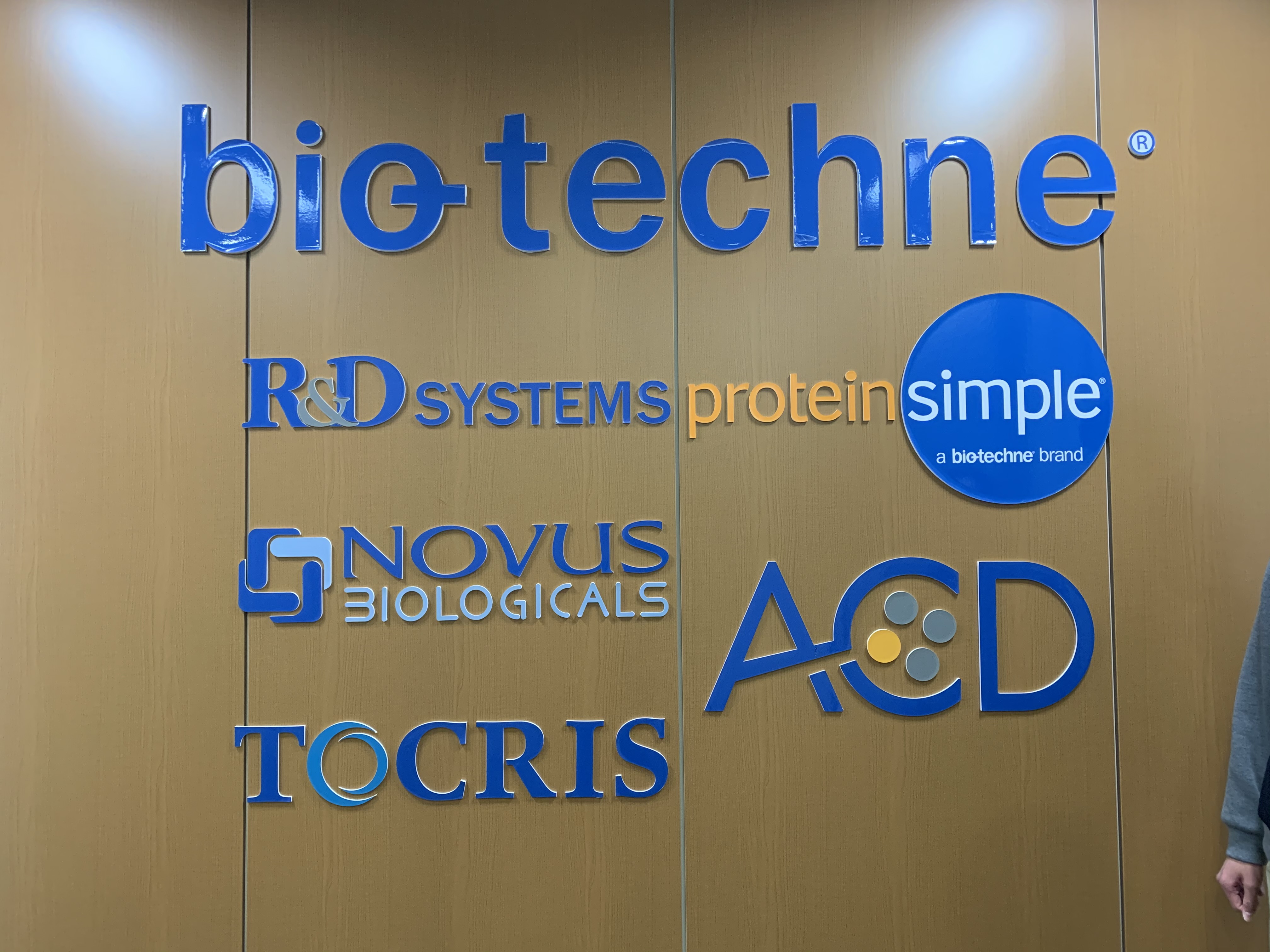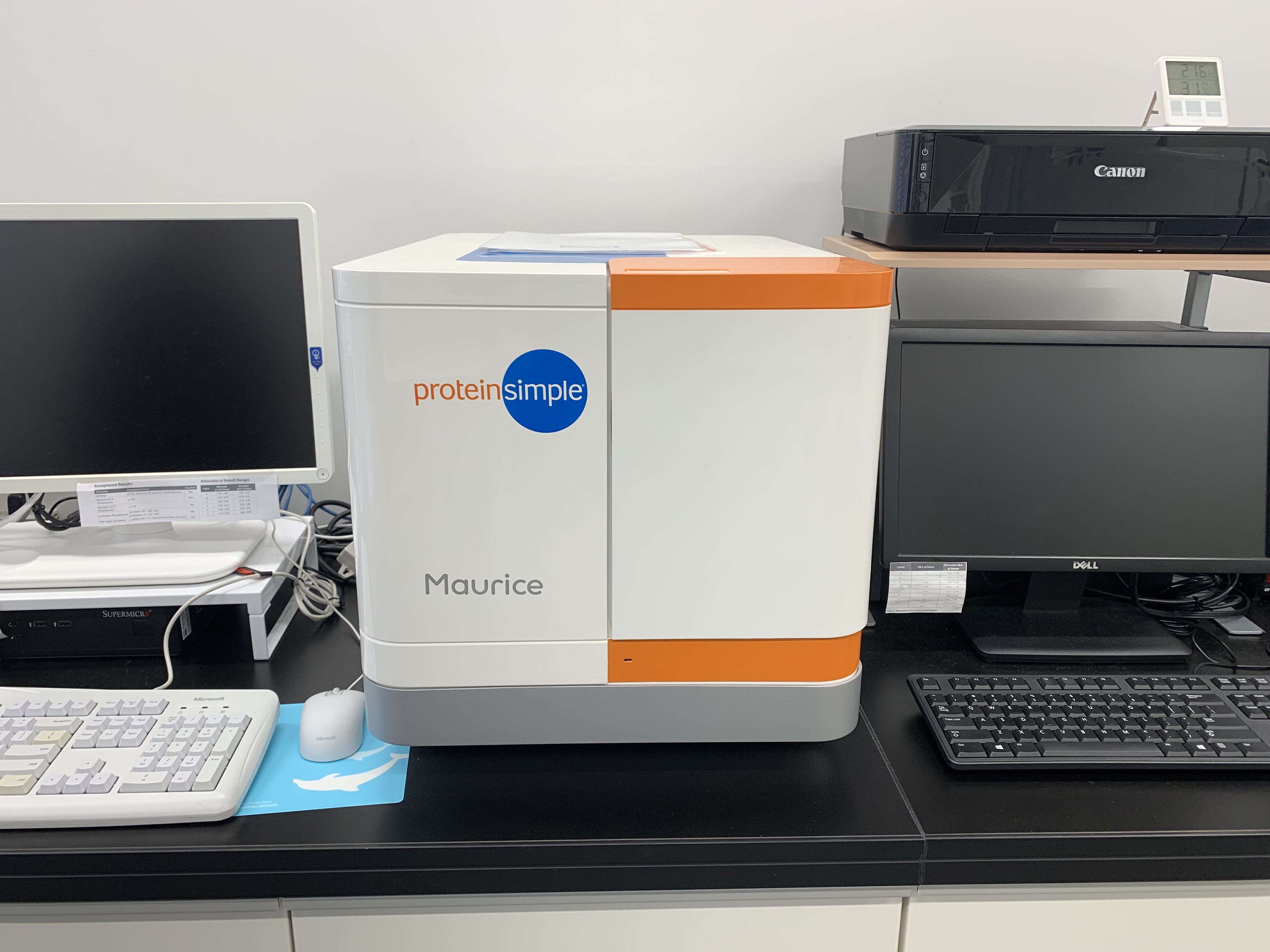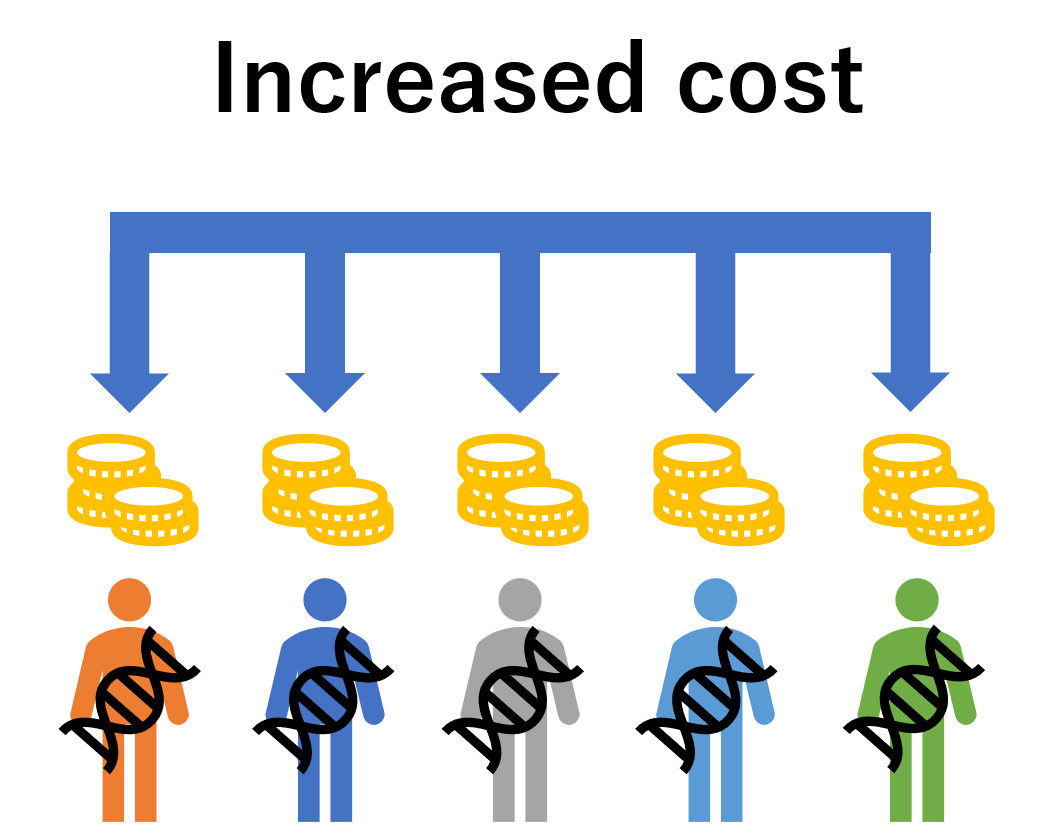Proteinsimple

Taken by a team member at the Proteinsimple

Taken by a team member at the Proteinsimple
In November of 2020, I interviewed Proteinsimple, a company that deals with protein analysis equipment.
ProteinSimple is a company that mainly provides equipment to research institutes and pharmaceutical companies related to biopharmaceuticals. We interviewed ProteinSimple, which is at the forefront of biomedicine.
We interviewed ProteinSimple, a company at the forefront of biomedicine, about the bio-industrial market, personalized medicine, biopharmaceuticals, and genome editing and designer babies.
In the interview, Mr. Yamashita and Ms. Shiokawa answered our questions.

Taken by a team member at Proteinsimple
Q1 What is the current market for the biotechnology industry?
Overall, it is probably about 20-30 trillion yen. Among them, biopharmaceuticals account for a large portion, and in recent years there has been a lot of research on immunology, and the market for antibody drugs is rapidly expanding.
The market for antibody drugs is expanding rapidly. Antibody drugs are also playing an active role in the development of therapeutic drugs for the new coronavirus that is currently spreading around the world.
In the future, more and more drugs will be tailored to individual genes, which will make them more expensive and further expand the market scale.
Q2 What do you think the future of personalized medicine will be like?
I believe that individual-level medical care will become even more widespread in the future. In the U.S., there are already places that are providing such treatment, and it is gradually spreading in Japan as well.
However, as we move forward with personalized medicine, we need to ensure that information from genome analysis is managed thoroughly, as it is important personal information. In the United States, genome analysis
In the U.S., genome analysis can only be performed after passing several strict screening procedures, which I think is quite a security measure.
Q3 What do you think the future of biopharmaceuticals will be like?
Biopharmaceuticals are approved conditionally in some cases in the U.S., and the approval of drugs is speeding up. If the approval of biopharmaceuticals continues in this way, we believe the demand for biopharmaceuticals will further expand.
We believe that demand for biopharmaceuticals will expand further.
Q4 What is your opinion on genome editing?
I think genome editing is necessary. I think it is an indispensable technology for people who cannot lead a normal life due to genetic mutations. However, both in Japan and in the U.S.
However, in both Japan and the U.S., there are many people who are resistant to genetically modified and genome edited products. In contrast, researchers are working on research for people with genetic abnormalities.
Some researchers are of the opinion that genome editing is not a problem because it only shortens a genetic change that would take thousands or tens of thousands of years to a year or so.
It is a difficult issue, but designer babies are not only unethical, but also create a disparity between poor and rich people. The baby's genes are checked before birth.
It has the advantage of eliminating genetic mutations, but it is a very difficult issue to determine.
At the moment, genome editing technologies such as CRISPR/Cas9 are in place, but humans are still not able to artificially produce proteins efficiently.
Therefore, if genome editing technology and protein synthesis technology are combined, I believe that biomedicine will improve dramatically.
Q5 What is your opinion about the future of biomedicine?
There is a difference between genome editing, the people who study it, and the people who use it. For example, Nobel developed dynamite to enrich people's lives.
For example, Nobel developed dynamite to enrich people's lives, but people used it for war and other purposes. No matter how good the research is, it is the patients who use it, and if this gap is not narrowed, genome editing will not be used.
If this gap is not narrowed, genome editing will not be used. Furthermore, I think the cooperation of politicians is also essential. Biomedicine will drive up the cost of medical care.
If politicians do not spend money on it, there will be a disparity between the poor and the rich.
Therefore, I believe that the development of biomedicine requires not only research but also the cooperation of various people.
There is no doubt that biomedicine will expand in scale in the future, but I think the growth of biomedicine will stagnate for a while.
However, I think that the growth of biomedicine will stagnate for a while. I feel that we are at a standstill right now due to ethical issues in promoting biomedicine. However, biomedicine is always necessary. For example, people in poor countries are selling their limbs and organs.
Some people in poor countries have sold their limbs or organs, or even had them taken. At this stage, the technology to create organs artificially has not been established yet.
Thus, I believe that biomedicine and regenerative medicine must be developed in order to reduce the number of "people born just to donate their organs.
I learned a lot about the current state of biomedicine by interviewing people working on the front lines of it!
I realized that it is very difficult for biomedicine to become widespread. I realized that it is very difficult to spread biomedicine, but at the same time, I could feel that biomedicine is indispensable for human beings.
At the same time, I could feel that biomedicine is essential for humanity.




